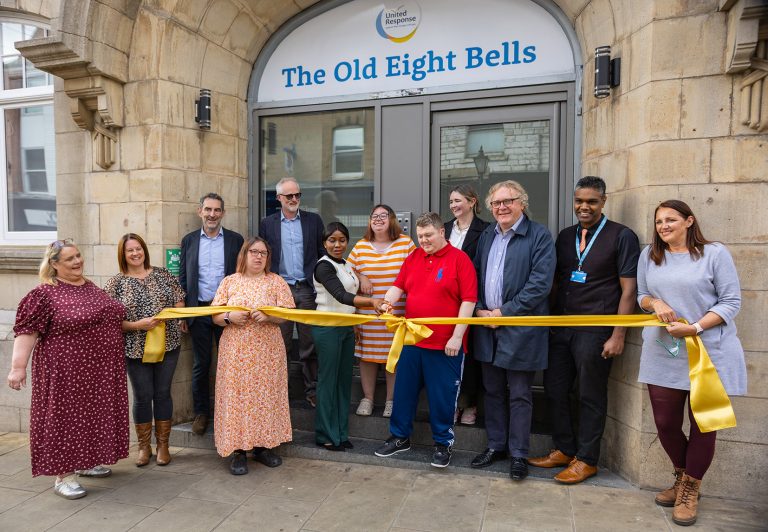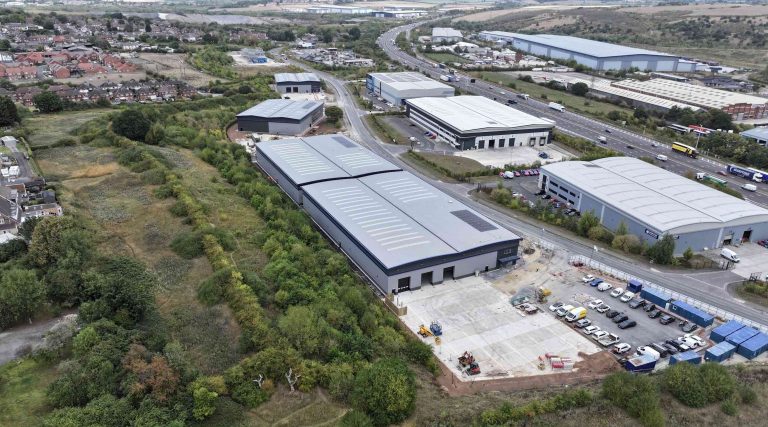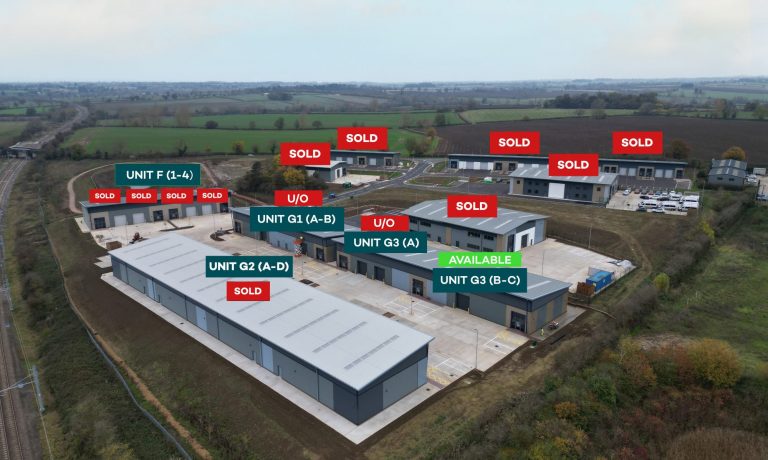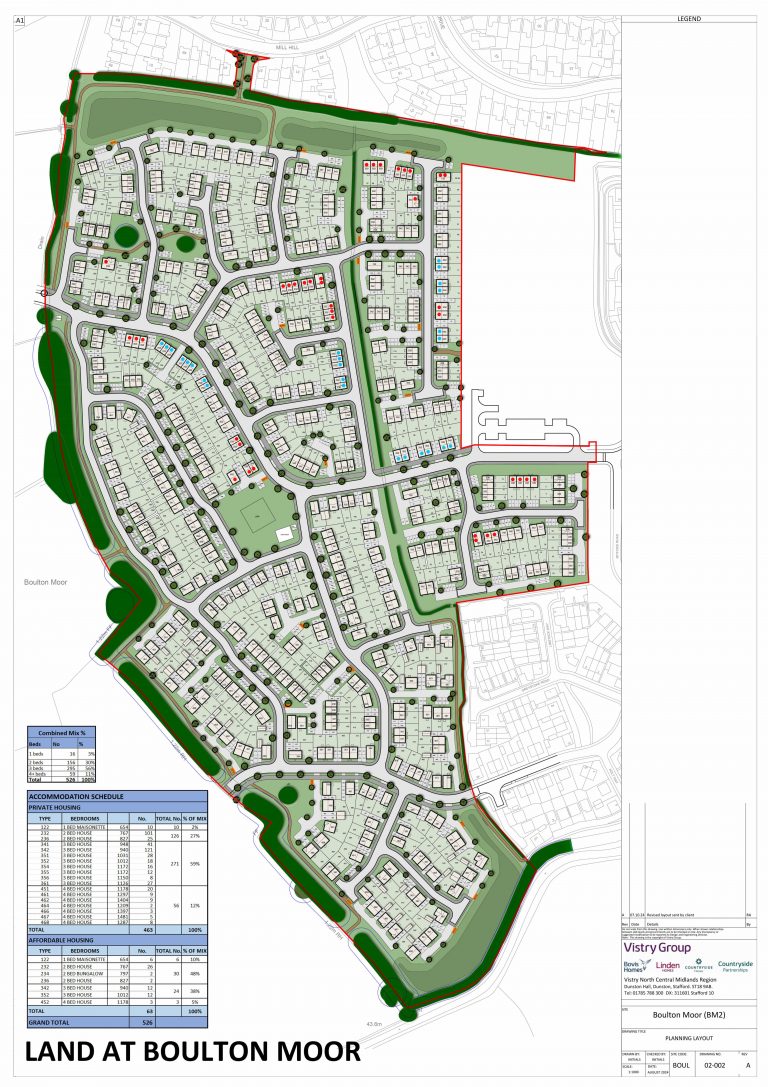TransHumanity, a spinout from Loughborough University, has secured £400,000 in pre-seed investment. The round was led by SFC Capital with additional investment from Silicon Valley-based Plug and Play.
Leicester pharmacy sold to first-time buyer
Alphageek Digital appoints new MD to drive growth
Nottingham companies stage event to raise money for men’s mental health charity
Just two weeks to go until property professionals gather for the East Midlands Bricks Awards 2025
Book your place at the 10th annual awards now to avoid disappointment!
The event, which will begin at 4:30pm and continue until 7:30pm, will also feature Councillor Nadine Peatfield – Leader of Derby City Council, Cabinet Member for City Centre, Regeneration, Strategy and Policy, and Deputy Mayor of the East Midlands, as keynote speaker.Shortlist for the East Midlands Bricks Awards 2025
Architects of the Year – sponsored by Roy Geddes Bricks Church Lukas Morrison Design Pelham Architects Contractor of the Year – sponsored by EMEC Ecology Goodward Construction Miller Knight Winvic Construction Developer of the Year – sponsored by Devello Clowes Developments St James Securities Vistry East Midlands Most Active Agent – sponsored by Knapton Wright Salloway Property Consultants OMEETO Rigby & Co Deal of the Year – sponsored by Frank Key Built-to-rent deal at next phase of Derby Castleward regeneration – Lovell, Placefirst Vaillant Live deal – St James Securities Top Wighay deal – Vistry East Midlands Residential Development of the Year – sponsored by Build Manager Abbey Central – Stagfield Group & Peveril Homes Riber Castle – StudioTwenty Prospect Place – TUNE Commercial Development of the Year – sponsored by Global HSE Group Sherwood Observatory – G F Tomlinson Canopy, Leicester – Henry Brothers Homefield College SEND Building – Scope Construction Vaillant Live – St James Securities Sustainable Development of the Year – sponsored by Viridis Evo Corby – PBBE Corby BV, PineBridge Rykneld Homes North East Derbyshire retrofit – Coactivation Nottingham College Construction Skills Centre (CSC) and The Gateway – G F Tomlinson Abbey Central – Stagfield Group & Peveril Homes Excellence in Design – sponsored by Konsileo Loughborough University DigiLabs Teaching Space – APSS Sutton on Sea Colonnade and Pleasure Gardens – G F Tomlinson Vaillant Live – St James Securities Responsible Business – sponsored by Wright Vigar Scope Construction G F Tomlinson Morrison Design The Overall Winner, sponsored by SEV, will also be announced at the ceremony, the winner of which will be awarded a grand prize – a year of marketing/publicity with Business Link worth £20,000, with the opportunity to split or gift the marketing to a charity of their choice.The East Midlands Bricks Awards 2025
What: The East Midlands Bricks Awards 2025 When: Thursday 2nd October (4.30pm – 7.30pm) Where: Derek Randall Suite, Trent Bridge Cricket Ground, Nottingham. Limited parking available onsite with additional free parking at Notts Sports Ground. Keynote speaker: Councillor Nadine Peatfield – Leader of Derby City Council, Cabinet Member for City Centre, Regeneration, Strategy and Policy, and Deputy Mayor of the East Midlands Tickets: Available here Dress code: Standard business attire Thanks to our sponsors:











To be held at:

East Midlands firms still facing price pressures as inflation persists
Businesses across the East Midlands are continuing to feel the squeeze as inflation holds steady at 3.8%, according to the latest figures from the Office for National Statistics for the 12 months to August 2025.
The persistence of inflation is influencing operational decisions for local companies, with many considering increases to prices in response to rising costs. Research from the East Midlands Chamber shows that around four in ten firms are already weighing price adjustments to maintain margins.
Companies in the region are navigating multiple financial pressures beyond inflation. Rising employment costs, including higher National Insurance contributions and a growing national living wage, are adding to operational challenges.
The combination of steady inflation and elevated costs underlines ongoing uncertainty for businesses, highlighting the importance of clear fiscal policy and predictable government support. Firms continue to seek assurance that further tax increases or policy changes will not add to financial pressures in the near term.
Nottinghamshire digital agency secures £20,000 for additional staff and equipment
Insect farming business expands in South Lincolnshire
Fairman Knight and Sons UK, a commercial-scale insect farm, has invested in a 120,000 sq ft site at Holbeach Technology Park to support ongoing growth. The company converts surplus organic food waste into Black Soldier Fly larvae, which are dried for use as sustainable feed for pets, livestock, and aquaculture. By-products from production are also processed into high-quality fertiliser.
The business began operating from the South Lincolnshire Food Enterprise Zone (SLFEZ) in 2024, benefiting from local and national support including Lincolnshire County Council, the UK Food Valley network, Innovate UK, Grants4Growth, UKSPF, and Made Smarter grants. During this period, Fairman Knight expanded its operations and established itself as a leading UK commercial-scale surplus waste upcycler.
The move to Holbeach allows the company to scale production while remaining within the UK Food Valley, a region noted for its concentration of food innovation and manufacturing. The previous site, The Hub, will continue to host new tenants as the SLFEZ develops its portfolio of innovative food and agri-businesses.
Fairman Knight’s relocation reflects the continued growth of sustainable protein production and highlights the support infrastructure available in South Lincolnshire for high-growth, environmentally focused food businesses.
Trio of prime industrial assets sold at Corby’s Saxon Park in multimillion-pound transaction
Mansfield nightclub transformed into homes for people with learning disabilities
Capital Angling hooks first unit at Origin’s ARK
Loughborough University spinout secures £400,000
West Northants seeks high-value investment and tech growth
West Northamptonshire Council is actively promoting the area to businesses looking to invest, relocate, or expand. A new online Commercial Property Search Tool allows companies to identify available land and premises across office, industrial, retail, and mixed-use categories, with filters for size, type, and location.
The council is targeting sectors with growth potential, including advanced manufacturing, life sciences, clean energy, advanced logistics, motorsport, creative and digital industries, and the experience economy. Both greenfield and brownfield development sites are highlighted to support expansion plans.
West Northamptonshire sits within the Oxford-Cambridge Growth Corridor and hosts over 19,000 businesses serving a population of more than 425,000. Recent investment activity includes Marks & Spencer’s £340 million development at Daventry International Rail Freight Terminal, which underscores the region’s appeal for logistics and large-scale, technology-driven projects.
The council’s strategy focuses on sustainable, inclusive growth, providing guidance and tools to streamline site selection and facilitate high-value business operations in the area.
UK games industry calls for stronger tax support
The UK video games sector contributes £12 billion annually to the economy, supports over 73,000 jobs, and generates £2.2 billion in tax revenue, according to a new report by TIGA, the trade association for the industry. Most economic activity occurs outside London, with regional hubs such as the North West (£443m), Scotland (£393m), West Midlands (£362m), and East of England (£362m) making significant contributions.
TIGA’s report highlights that the UK faces a competitive disadvantage for inward investment compared with countries such as France, Australia, and Quebec, where tax incentives for games development offer effective relief rates of 30–31.9%, compared with 20.4% under the UK’s Video Games Expenditure Credit (VGEC). Small and medium-sized studios are particularly affected, with 78% employing four or fewer staff and struggling to access funding.
The report recommends three measures to boost growth: introducing an Independent Games Tax Credit (IGTC) offering 53% relief on qualifying costs up to £23.5 million, raising VGEC rates from 34% to 39%, and increasing the proportion of qualifying expenditure from 80% to 100%. Analysis suggests the IGTC alone could add £482 million in Gross Value Added and create nearly 7,000 jobs while generating £156 million in tax revenue, exceeding the initial cost to HMRC.
The report, authored by economists from the University of Portsmouth, combines industry data with independent analysis to assess economic impact, international comparisons, and the potential outcomes of strengthened tax incentives for the UK games sector.
North East Lincolnshire council launches business tendering workshops
North East Lincolnshire Council is offering a pair of workshops designed to help local businesses compete for public and private sector contracts.
The sessions, organised through InvestNEL and delivered by Tender360, will cover all stages of the tendering process, from identifying opportunities to preparing bid submissions. Businesses will gain guidance on procurement procedures, buyer expectations, evaluation criteria, pricing, and integrating social value into proposals.
The first workshop on 16 October will provide an introduction to public sector tendering and focus on preparing businesses to bid, including policies, insurances, accreditations, and references. The second session on 23 October will concentrate on assessing opportunities and producing strong tender responses, with practical advice on method statements, commercial strategy, pricing, and demonstrating added value. Both workshops will take place at the Europarc Innovation Centre, Grimsby, from 09:30 to 12:30.
Attendance is limited to businesses registered in North East Lincolnshire, and participants must commit to both sessions. A refundable deposit of £25 is required. Funding is provided by the UK Shared Prosperity Fund.
Care home operator expands with double swoop
Another unit sold at Beauchamp Business Park
Making Tax Digital: less paper, more peace of mind – by Tracy Priest, associate director at Streets
- You are registered for self-assessment
- You earn income from self-employment, rental property or both
- Your combined income from these sources exceeds £50,000 (based on your 2024/25 tax return)
- Use HMRC-approved software to maintain digital records
- Submit quarterly updates of income and expenses
- Finalise your annual tax position digitally, including other income, allowances and reliefs
- Choose and set up compatible software
- Register for MTD with HMRC
- Keep digital records for each business or property
- Consider using a separate bank account for business/rental transactions to simplify record-keeping
- Standard Package: you manage your own digital records and software. We assist with your annual tax return based on your quarterly submissions and other income details.
- Premium Package: we handle everything—from software setup and bookkeeping to quarterly submissions and your final return.
- Tailored Options: If you need support somewhere between these two, we can customise a package to match your level of involvement, budget and business complexity.
Nottingham digital marketing agency secures £30,000
FedEx launches dedicated freight facility at East Midlands Airport
FedEx has opened a 19,000-square-foot freight facility at East Midlands Airport, designed to handle large cross-border air shipments separately from its parcel sorting operations. The site includes multiple trailer docks and recessed pits to improve pallet handling and overall freight processing efficiency.
The facility increases FedEx’s freight capacity to meet growing import and export demand from businesses across the East Midlands. It forms part of the company’s broader Tricolor strategy, which separates express parcels from less-urgent heavy freight to optimise asset use and reduce costs.
The East Midlands investment follows the July opening of a 38,000-square-foot replacement logistics centre near Manchester Airport, which incorporates automated sorting and x-ray scanning to support both freight and e-commerce shipments. FedEx also upgraded its Stansted Airport terminal in December 2023 with a new parcel sorting system for imports.
These developments complement FedEx’s international expansion, including a move to a larger facility at Istanbul Airport and plans to establish a regional air hub in Riyadh, Saudi Arabia. The company operates three air hubs in the United Kingdom and continues to increase capacity to support cross-border trade for UK businesses.






















